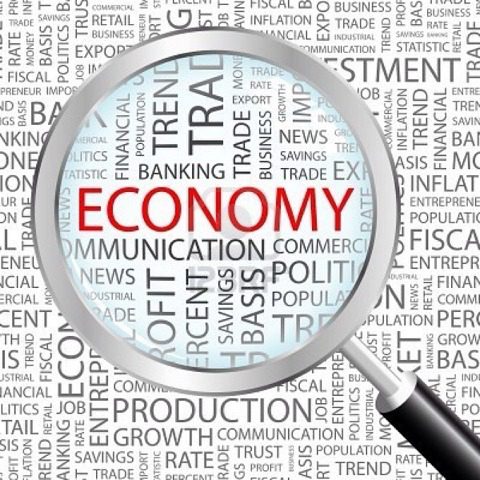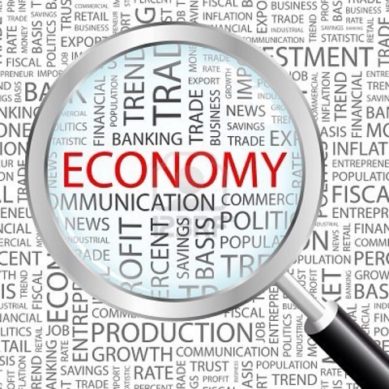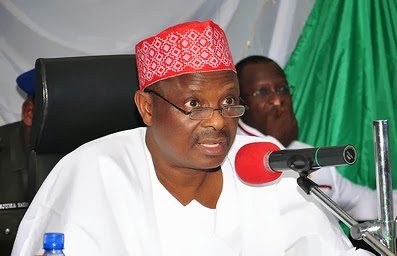Economic Issues
Reflating the economy -By Boniface Chizea


In my quiet moments I had spared some thoughts on what should advisedly be the thrust of fiscal policy as we await the full take off of President Muhammadu Buhari’s administration to complement monetary policy in view of the existential challenges that currently confront the nation and I have come to the conclusion that we should go for a policy that would attempt to deliberately reflate the economy and risk an increase in price levels as we do so. It would also imply that monetary policy should be similarly deliberately targeted at growing the economy as it is currently the case.
Therefore what we are hereby recommending is an expansionary fiscal policy that would be targeted at achieving rapid economic growth which would result in the creation of employment opportunities to get the idle and under-employed population of the country back to work, boost purchasing power and hopefully catalyze a massive enough momentum which ultimately would allow us to spend our way out of the inflationary pressure that is bound to result.
As we make this recommendation we would like to recall the sentiments recently expressed by the President in a paper he presented during his recent visit to America at a forum at the United State Institute for Peace (USIP) when he declared in the paper he presented titled, ‘We have no illusions about our challenges’ that; ‘As we ramp up our efforts to defeat Boko Haram, we know that winning this battle sustainably will require that we expand economic opportunities and create jobs for our teeming young population.’
But whenever I have attempted discussing this idea with some friends I have confronted skeptical minds particularly when I cite the United States of America example; that we do not have the diversified economic base to replicate the American feat in this regard and some have even questioned where the funding is going to come from.
The government could of course borrow and of course nation states in such predicaments have other known and recognized sources for finding such monies! We have the example of Barack Obama to instruct us in this respect and it might be necessary to declare up front that one is not naïve to think that this example is going to be easy to replicate and copy.
When President Obama assumed office in 2008 the American economy was in similar dire straits. It would be recalled that was when the bubble burst on the sub-prime mortgage market resulting in wide spread loan defaults followed with massive job losses; mortgage firms went bankrupt and the budget deficit ballooned.
While some of us empathized and worried that this once in a life time opportunity of a black man occupying the white House was going to be marred by such unsavory developments in the economy almost guaranteeing that he would be a one term President but the rest as we often say is now history.
It is on record that with this development in America that the rest of the world literally went into recession but President Obama doggedly stuck to what he now characterizes as ‘middle class economics’, proceeded to adopt expansionary fiscal policy and bailed out companies that were moribund particularly car manufacturing companies in the process saving potential massive job losses. He expanded the security net resulting at some point in time to a lockdown as it was feared that the American economy was going to experience a shut down as Congress refused to countenance further expansion of the deficit.
Well the fact that Obama more or less did not encounter any opposition in his quest for the renewal of his tenure is proof positive if any was ever needed that his administration has been a roaring success which allows him to walk with assured recognizable swagger.
The only blot which most blacks see is his recent fond passion for the defense of prochoice and same sex marriage (Union) and his inexplicable unrestrained celebration of the American Supreme Court decision to approve same sex Union in the whole of America coupled with the ill-advised attempt to force this aberration on other countries particularly in Africa sub of the Sahara. Also as we make this recommendation for expansionary fiscal/monetary policy it would appear that we are at one with the Lagos Chamber of Commerce and Industry (LCCI).
But where we pointedly disagree is the Association’s rapid and unrestrained opposition of the Central Bank of Nigeria decision to delist some 41 items from access to official foreign exchange funding. The LCCI argues that such a step is constraining of the economic space and might result in some company closures as some of the excluded items are intermediate products for some of its membership.
But I shared a discussion platform with Muda Yusufu the Director General of the body on an NTA Good Morning Nigeria programme anchored from Abuja when a manufacturer of tomato puree regaled us with how following the announcement of this policy his operations suddenly gained traction resulting in him having to recall One Thousand workers he had previously laid off because of lack of demand while he was full of effusive praise for the President and the Governor of the Central Bank for this laudable policy.
And the explanations which the authorities at the Central Bank gave in justification of this measure is that in addition to the fact that reserves are dwindling and therefore there was no option but to attempt some demand management, it was explained that the extant free for all regime only resulted in the exportation of badly needed jobs.
We are aware that LCCI had engaged with the Central Bank to share perspectives on this matter and despite this development the LCCI would want to blackmail the CBN to toe its recommended line of action of policy reversal even if the organization is alone amongst the other organized bodies such as Manufacturers’ Association of Nigeria and the Nigerian Association of Chambers of Commerce, Industry Mines and Agriculture (NACCIMA) to be championing this course of action.
In practical terms, attempting to reflate the economy would result in allowing the budget deficit to go beyond the current target of 3 per cent of GDP specified as a limit in the Fiscal Responsibility Act even if this thrust would necessitate a review of the law in this regard.
For the sake of comparison it is on record that in Ghana the deficit this year is at the level of 7.3 per cent of GDP up from an initial estimate of 6.5 per cent as Ghanaians attempt to deliberately stimulate the growth of their economy. It is a matter for the record that the deficit in budget 2015 is of the order of 1.4 per cent of Nigeria’s rebased GDP.
Reflating the economy would also entail that we deliberately avoid any measures that would result in the layoff of workers. And therefore as we undertake all manner of restructuring including the rationalization of Ministries, Departments and Agencies it is recommended that we do so with a mind of avoiding throwing more people into the job market and such a mindset should inform the decisions we take with regard to the existence of some special purpose vehicles such as SURE-P etc.
it would also require that we aggressively attempt to expand the taxation net to capture particularly those who are currently not paying any tax and also make the rich amongst us to contribute a bit more through the levying of luxury tax as was commenced during the immediate past regime to continue to bridge the yawning inequality gap in the country.
To put the extent of work that is required to be done in this respect in context, available data regarding the volume of tax revenue to GDP indicated that it is 7.8 per cent for Nigeria while the same statistic for France, UK, US and Tanzania stand at; 45, 39, 27 and 12 per cent respectively.
Therefore it is obvious that we have some catching up to do in this respect and it is reassuring to note that some progress had been made recently by aggressively mobilizing tariff revenue to boost non-oil income. We might not have any option but to in due course bite the bullet of terminating the subsidy regime.
As at last count the subsidy amount of about One Trillion Naira a year trumps the budget provision for capital expenditure for 2015 and most certainly this is not sustainable. The fact surrounding the Nigerian situation regarding the subsidy regime is that it is hallmarked with all manner of sleaze including unearned payments. This observation inevitably begs the question regarding who are the beneficiaries of this misallocation of resources.
Studies have shown that only about 8 per cent of the subsidy payments reach the poorest 20 per cent of the population. In fact the imperatives of the deregulation of the downstream petroleum sector is an idea whose time is here as it is not possible nor is it realistic to expect to attract private capital for the construction of refineries under a regulated regime.
And we must find the resolve to pay focused attention to many other sectors of the economy which even have the potential of making far more greater contribution to the economy than oil such as the gas sector that had been the subject of gross neglect.



















